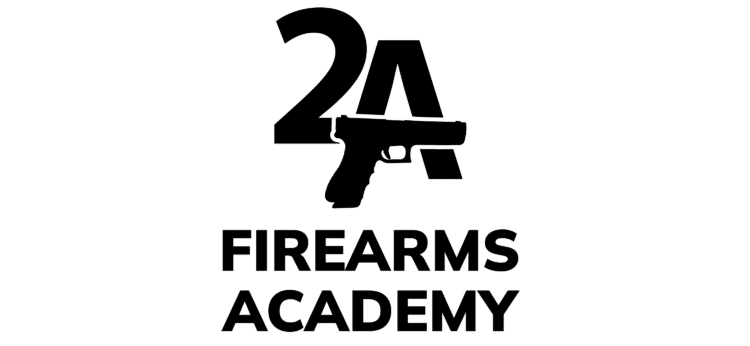If you carry a firearm for self-defense, you’re someone who understands the world’s risks and is committed to personal safety. A firearm is not a magical amulet against harm; it’s a tool that must be used responsibly and skillfully. And unlike a hammer or screwdriver, which you might use in a controlled setting, a firearm is a tool that could be used in the chaotic, high-stress environment of a lethal encounter. A simple slip-up with a wrench might leave you with a bruised hand, but a misstep with a firearm can have life-altering or fatal consequences, including the risk of harming innocent people.
Selecting a firearms instructor is not merely about finding someone with experience or accolades — it’s about finding someone with the skill, knowledge, and teaching ability to empower you with life-saving techniques. So, how do you evaluate potential instructors?
What Defines Competent Instruction?
Not all firearms instructors are equal, and unfortunately, some are far from adequate. Competent instruction requires two essential qualities: comprehensive knowledge of firearms and self-defense principles, and an ability to effectively teach this knowledge to a range of students. An instructor should not only understand firearms mechanics but also the legal, ethical, and situational dynamics of using a firearm in self-defense. They need a robust understanding of both the mental and physical skills required to operate under stress.
Regrettably, many instructors lack these crucial qualities. Some may not fully understand self-defense law or may fail to address the unique pressures involved in high-stakes scenarios. An unprepared or inexperienced instructor may end up leaving students with misconceptions or incomplete skills, which can be dangerous if those students find themselves in a real-world defensive situation.
The best instructors go beyond technique. They impart a nuanced understanding of self-defense laws, help students manage stress responses, and instill critical judgment skills for complex, real-life encounters. They prioritize teaching with clarity, patience, and adaptability, ensuring students retain and internalize what they’ve learned.
Evaluating an Instructor’s Credentials and Background
Finding the right instructor isn’t always easy, but it begins with assessing credentials. Certifications can be a good starting point, but not all are created equal. Just as diploma mills can churn out degrees, certain organizations offer instructor certifications with minimal training or experience required. Investigate the source of an instructor’s certifications — reputable organizations have a long-standing industry presence and are known for rigorous standards.
An instructor’s previous work experience can also be misleading if viewed superficially. For instance, while military or law enforcement backgrounds might sound promising, they don’t necessarily translate to a strong understanding of civilian self-defense law or teaching ability. Not all military personnel, for example, receive training in firearms instruction or the legal nuances of civilian defensive encounters. Similarly, only a fraction of law enforcement officers receive specialized firearms or defensive training. What the instructor specifically did in their role often matters more than the job title itself.
When vetting an instructor, don’t hesitate to ask questions about their specific experience. Did they serve as a trainer, or did they receive specialized defensive training? Have they undergone ongoing professional development in civilian self-defense? Do they regularly update their teaching methods to reflect current research and best practices?
For example, tens of thousands of people in the United States can legitimately claim they have worked for the FBI. But how many of those were involved in firearms training or even just training in general?
Recognizing Indicators of Quality in a Firearms Instructor
Quality instructors often have a visible, professional presence. Start by exploring their online footprint — a reputable instructor typically has a detailed website that outlines their experience, qualifications, and available classes. A well-maintained website or professional profile suggests that the instructor takes their work seriously. Look for descriptions of their training programs, methods, and intended skill outcomes.
Many instructors also share free content, such as instructional videos on platforms like YouTube, allowing you to preview their teaching style and expertise. Does the instructor communicate clearly? Do they demonstrate safe handling and thoughtful explanations? If you find yourself understanding concepts easily or appreciating their approach, that’s a positive indicator.
Likewise, social media channels or podcast appearances can reveal much about an instructor’s personality, professionalism, and expertise. Quality instructors engage with their audience respectfully, answering questions and sharing insights with patience and clarity. Their interactions online often reflect how they’ll treat students in class — if they’re dismissive or abrasive online, they may lack the patience required for effective instruction in person.
Gathering firsthand feedback is another valuable step. Ask local gun shops, shooting ranges, or even community forums for recommendations and reviews. A single negative review isn’t necessarily disqualifying, but a pattern of complaints could be a red flag. By talking to multiple students, you’ll gain a clearer sense of the instructor’s strengths, weaknesses, and overall approach.
Finally, before signing up, consider reaching out directly. A good instructor welcomes questions from prospective students and will be upfront about their training philosophy, qualifications, and what to expect in class. If they seem unwilling to engage or respond dismissively, it may signal a lack of dedication or a poor fit for your needs. A quality instructor will answer questions thoughtfully and provide guidance on whether their program aligns with your goals — and if not, they may even recommend someone better suited to your needs.
Final Thoughts on Choosing the Right Instructor
Choosing a firearms instructor is much like selecting a mechanic, lawyer, or any other professional. You wouldn’t hand your vehicle over to someone without verifying their reputation, so it makes sense to put even more effort into researching who you’ll trust with life-saving training. The right instructor has the potential to instill not just skills but the judgment and mental resilience necessary for responsible self-defense.
Approach this decision with care, and don’t settle for anything less than a highly qualified, skilled instructor who’s dedicated to helping you become a responsible, well-prepared gun owner.
